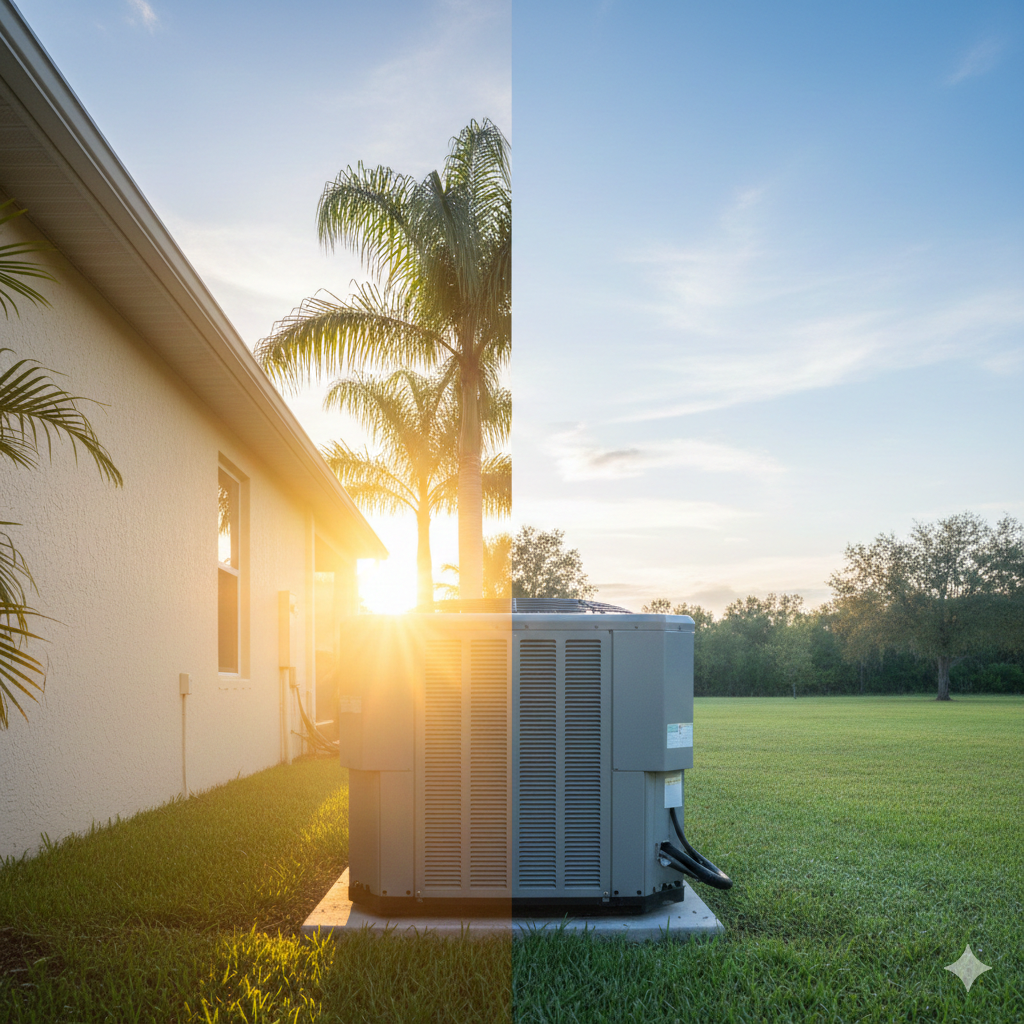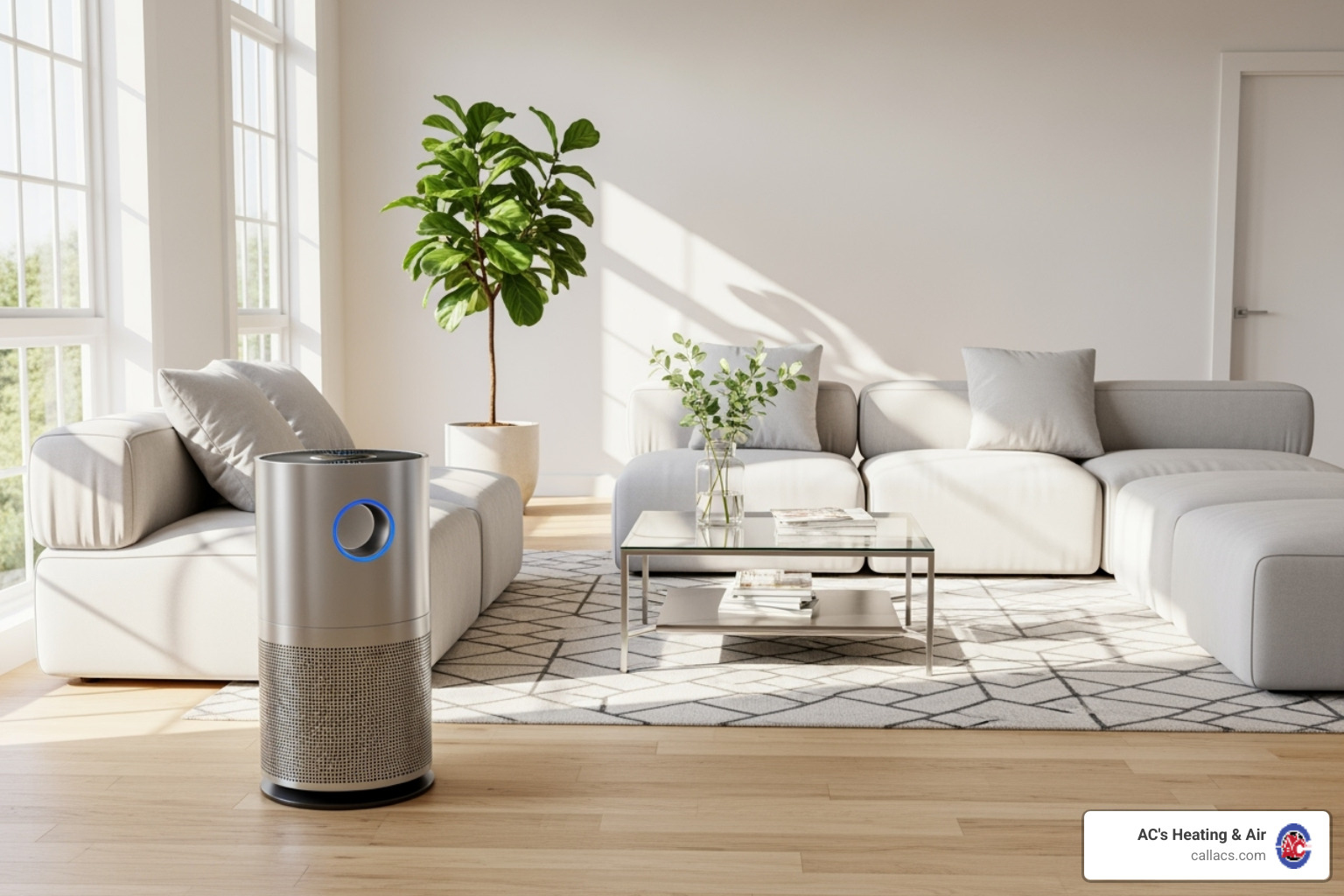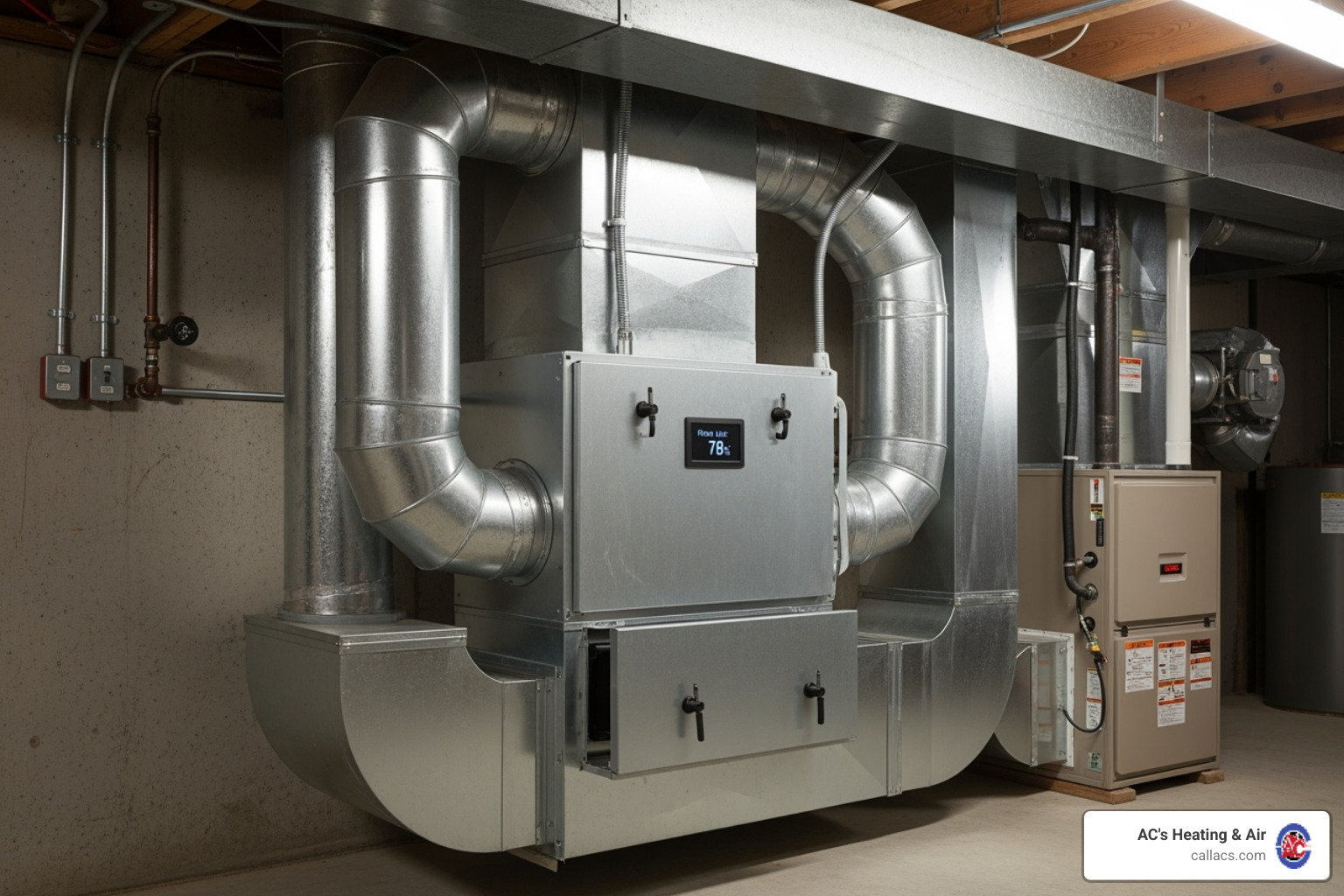Beat the Heat: Improve Your AC's Efficiency Today

Beat the Heat: Improve Your Commercial AC's Efficiency Today
AC efficiency improvement is key to keeping cool while also lowering bills and helping the environment. With some thoughtful adjustments, you can experience comfortable indoor temperatures without overburdening your wallet or the planet. Quick actions like sealing ducts, changing filters, and adjusting thermostat settings can make a big difference right away. These tweaks not only cut down on energy use but also extend the life of your AC system, cutting down on maintenance hassle.
The summer heat can be relentless, causing your air conditioning system to work overtime. This often leads to higher energy bills and increased energy consumption, negatively impacting the environment. However, improving AC efficiency isn't just good for your budget—it's a step towards more sustainable living. By taking proactive measures, you're not only enhancing your comfort but also reducing your carbon footprint. This aligns with the growing awareness of environmental responsibility that many in Central Florida's homeowner community share.
As an expert in AC efficiency improvement, I, Allen Chenault, have dedicated years to optimizing HVAC systems for reliability and sustainability. With over decades in the industry, my mission is to provide effective solutions that blend comfort with efficiency, ensuring our clients enjoy cool homes without unnecessary energy costs.

Related links about AC efficiency improvement:
- Commercial Air Conditioning Maintenance Services Orlando FL
- Commercial Air Conditioning Repair Orlando
Understanding AC Efficiency
To make your air conditioning system as efficient as possible, it's important to understand how it works and what efficiency really means. Let's break it down.
How AC Systems Work
At its core, an air conditioning system is designed to remove heat and humidity from your home. It does this through a cycle involving three main components: the evaporator coil, the compressor, and the condenser coil. The evaporator coil absorbs heat from the indoor air. The compressor then pumps the refrigerant through the system, and finally, the condenser coil releases the absorbed heat outside. This cycle keeps your home cool and comfortable.
SEER Ratings Explained
When shopping for an air conditioning unit, you might come across the term SEER—Seasonal Energy Efficiency Ratio. This rating measures how efficiently an AC unit operates over an entire cooling season. A higher SEER rating means the unit is more efficient, using less energy to provide the same cooling effect. For example, a unit with a SEER rating of 16 is more efficient than one with a SEER rating of 13.
The Impact of AC Efficiency on Energy Savings
An efficient AC system not only keeps your home comfortable but also saves you money. According to the Department of Energy, upgrading to a more efficient air conditioner can save homeowners up to 20% on cooling costs. This is because efficient systems require less energy to operate, reducing your electricity bills. Moreover, by consuming less energy, these systems also contribute to a smaller environmental footprint, aligning with the growing trend towards sustainable living.

AC efficiency improvement is not just about comfort—it's a smart financial and environmental move. By understanding how your AC system works and what affects its efficiency, you can make informed decisions to optimize its performance. Whether you're considering a new unit or looking to improve your current system, knowing these fundamentals is the first step toward a cooler, more cost-effective home.
Now that you have a grasp on AC efficiency, let's explore some top tips to improve your system's performance and reduce energy consumption.
Top Tips for AC Efficiency Improvement
Enhancing your air conditioner's efficiency doesn't have to be complicated. With a few strategic changes, you can enjoy a cooler home and lower energy bills. Here's how:
Upgrade Windows and Insulation
Energy-efficient windows and proper attic insulation are your first line of defense against heat. Double-pane windows help keep the cool air in and the hot air out. Similarly, adding insulation in the attic prevents heat from seeping into your home. This means your AC doesn't have to work as hard, saving you money and energy.
Seal and Maintain Ductwork
Leaky ducts can be a silent culprit in reducing your AC's efficiency. If your ducts are leaking, cool air escapes before it reaches your rooms. Sealing ductwork improves airflow and ensures your AC system works efficiently. Regular maintenance helps keep ducts in good condition, ensuring they deliver cooled air where it's needed.
Adjust Thermostat Settings
A smart thermostat is a game-changer for energy savings. These devices learn your schedule and adjust temperatures automatically. By setting your thermostat a few degrees higher when you're not home, you can significantly cut energy use. Plus, you can control smart thermostats remotely, making it easy to manage your home's temperature from anywhere.
Regular Filter Changes
Changing your AC filters regularly is crucial for maintaining good air quality and system performance. Dirty filters block airflow, making your AC work harder and less efficiently. By replacing filters every 1-2 months, you ensure that your system runs smoothly and keeps your indoor air clean.
Shading and Landscaping
Natural cooling can greatly improve your AC's efficiency. Planting trees or installing sun-blocking drapes can reduce the amount of heat entering your home. This means your AC won't have to work as hard to maintain cool temperatures. Strategic landscaping and shading can make a noticeable difference in your home's comfort and energy consumption.
By implementing these tips, you'll not only improve your AC's efficiency but also enjoy a more comfortable and cost-effective home. Let's dive deeper into how regular maintenance can further optimize your system's performance.
AC Maintenance for Optimal Performance
Routine AC maintenance is your secret weapon for keeping your system running efficiently and reliably. Just like a car needs regular oil changes, your air conditioner benefits from consistent care to perform at its best.
Professional Inspections
Having a professional inspect your AC system annually can catch small issues before they become big problems. Technicians have the expertise to spot wear and tear, ensuring parts like coils and fans are in good condition. They can also advise on any necessary repairs or upgrades to keep your system humming along smoothly.
Refrigerant Levels
One critical aspect of professional maintenance is checking refrigerant levels. Low refrigerant can make your AC work harder, leading to increased energy use and reduced cooling power. A technician will ensure your system has the right amount of refrigerant, optimizing AC efficiency improvement and preventing potential damage to the compressor.
The Benefits of Routine Maintenance
Regular maintenance extends the lifespan of your AC unit, delaying the need for costly replacements. It also boosts efficiency, which can lead to noticeable savings on your energy bills. According to Energy.gov, a well-maintained air conditioner can improve its efficiency by up to 15%.
By investing in routine maintenance and professional inspections, you safeguard your AC's performance and enjoy a cooler, more cost-effective home environment.
Next, let's address some common questions about improving your AC's efficiency.
Frequently Asked Questions about AC Efficiency Improvement
How can I increase my air conditioner efficiency?
Boosting your AC efficiency is easier than you might think. Start by focusing on your thermostat settings. A simple adjustment can make a big difference. Set your thermostat a few degrees higher when you're not home. This reduces the strain on your system and cuts down on energy use.
Duct sealing is another effective method. Leaky ducts can waste a lot of energy by letting cool air escape. Sealing these leaks ensures better airflow and reduces the workload on your AC.

Regular maintenance, like changing filters every 1-3 months, also plays a crucial role. Clean filters mean better airflow and less energy consumption.
Is it cheaper to leave the AC on all day?
Leaving the AC on all day might seem convenient, but it's not the most energy-efficient choice. Instead, use a smart thermostat to manage your cooling schedule. These devices can adjust the temperature based on your routine, ensuring comfort while saving energy.
When you're away, set the thermostat a few degrees higher. This prevents your AC from working overtime to maintain a constant temperature, which can lead to higher energy bills.
What temperature should I set my AC to?
Finding the right temperature for both comfort and savings is key. The U.S. Department of Energy suggests setting your thermostat to 78°F when you're home and need cooling. If this feels too warm, gradually adjust it until you find a comfortable setting.
During the night or when you're away, increase the temperature a bit more. This practice not only conserves energy but also reduces wear on your system, leading to long-term savings.
By making small adjustments to your thermostat and ensuring proper maintenance, you can improve AC efficiency improvement, enjoy a comfortable home, and save on energy costs.
Conclusion
At AC's Heating & Air, we believe that improving your AC's efficiency is not just about comfort—it's about making your home more sustainable and cost-effective. By taking proactive steps, you can significantly reduce your energy bills and environmental impact.
Proactive Steps for a Sustainable Home
- Smart Thermostat Use: Adjusting your thermostat strategically can lead to substantial energy savings. Consider installing a smart thermostat to automate these changes and maintain comfort effortlessly.
- Routine Maintenance: Scheduling regular maintenance checks ensures your AC system runs smoothly. Our professional inspections can help spot issues early, maintaining your system’s efficiency and extending its lifespan.
- Sealing and Insulation: By sealing ductwork and upgrading insulation, you can prevent energy loss. This reduces the load on your AC, making your home more energy-efficient.
- Natural Cooling Techniques: Use shading and landscaping to block direct sunlight. Planting trees or using sun-blocking drapes can reduce your cooling needs.
By implementing these strategies, you're not only enhancing AC efficiency improvement but also contributing to a more sustainable lifestyle. At AC's Heating & Air, we're here to assist you with custom HVAC solutions that keep your home comfortable and eco-friendly.
For more details on how we can support your HVAC needs, visit our commercial HVAC services page. Let's work together to create a cooler, more efficient home environment.



